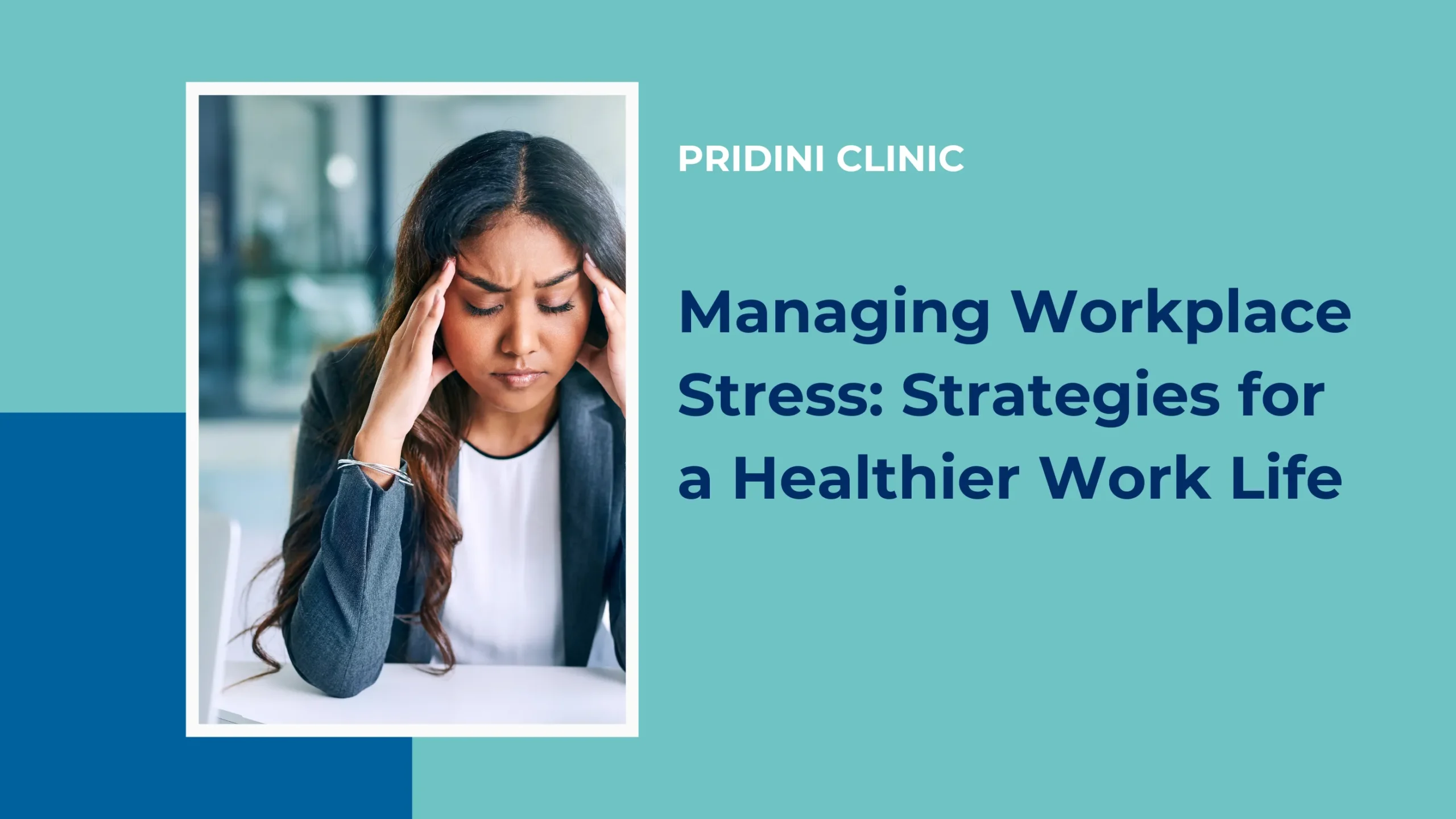
In today’s fast-paced work environment, stress has become a common part of many people’s lives. While a certain amount of stress can be motivating, excessive workplace stress can have serious implications for mental and physical health. At Pridini Clinic, we understand the challenges of managing workplace stress and are committed to helping individuals and organizations create healthier work environments. This blog will discuss the effect of workplace stress on mental well-being, how to recognize the signs of burnout, effective strategies for managing work-related stress, the role of employers in supporting employee mental health, and tips for creating a healthy work-life balance.
Workplace stress is one of the leading contributors to mental health issues such as anxiety, depression, and burnout. When stress becomes chronic, it can lead to feelings of overwhelm, irritability, and even physical symptoms like headaches, fatigue, and digestive problems. Over time, unmanaged stress can severely impact an individual’s productivity, job satisfaction, and overall well-being.
The mental toll of workplace stress can also spill over into personal life, affecting relationships and daily functioning. It’s important to address workplace stress early to prevent it from escalating into more serious mental health problems.
Burnout is a condition characterized by physical, emotional, and mental exhaustion, often resulting from prolonged exposure to stress. It often results from feeling overwhelmed by work demands or underappreciated in the workplace. Recognizing the signs of burnout is crucial for taking steps to manage it effectively. Common signs include:
If you recognize these signs in yourself or a colleague, it’s important to address burnout before it worsens.
Managing workplace stress requires a proactive approach. Here are some effective strategies:
Employers significantly influence shaping a work environment that nurtures mental health. By cultivating a culture of openness and understanding, employers can help reduce the stigma associated with mental health issues. Here are some ways employers can support their employees:
Here are some strategies to help you find a balance that suits your lifestyle:
At Pridini Clinic, we are dedicated to helping individuals and organizations manage workplace stress and promote mental well-being. If you or your employees are struggling with stress, contact us today to learn more about our services and how we can support you.

